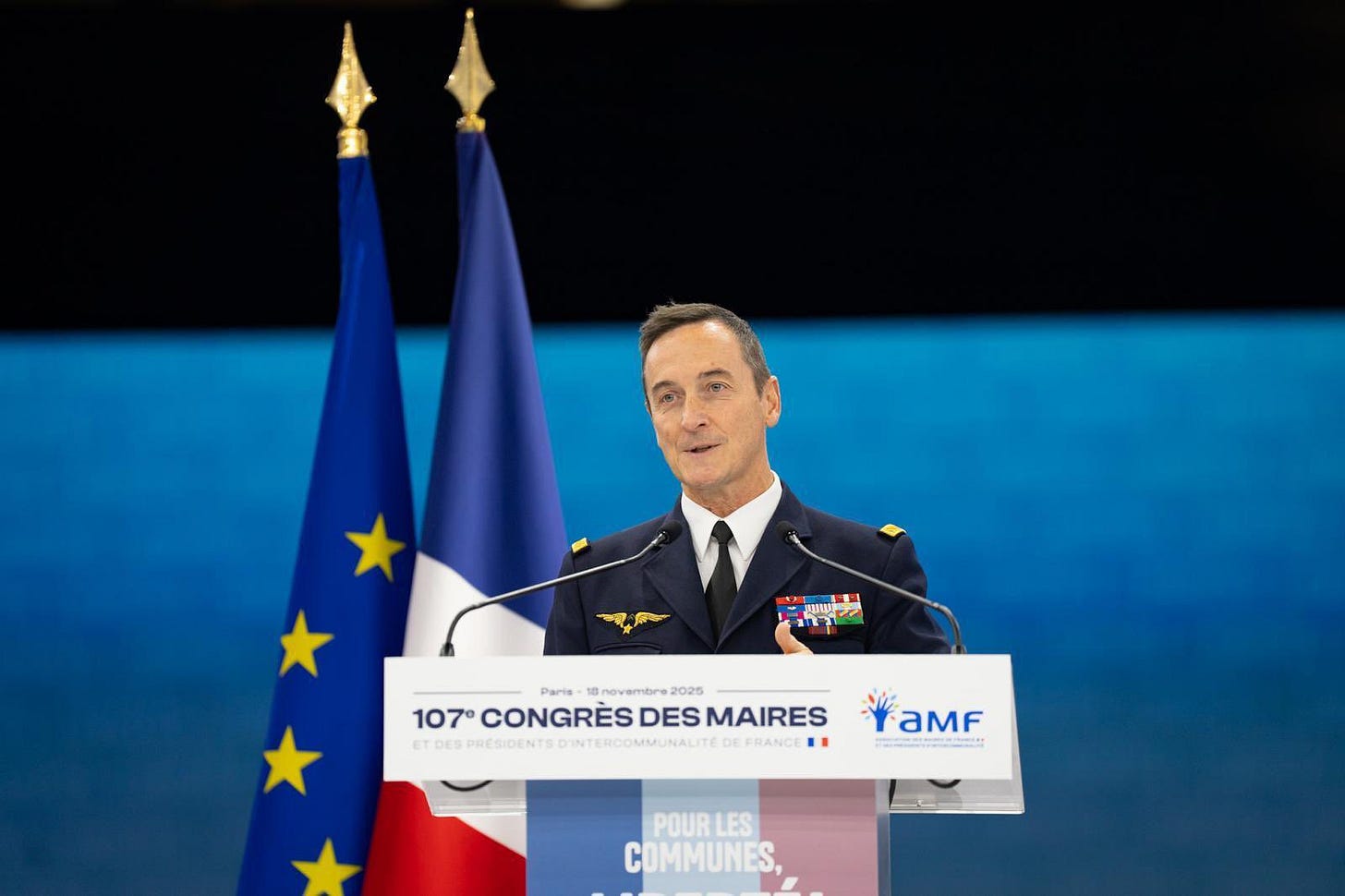"If our country falters because it is not ready to accept losing its children" - General Mandon's full speech
The full text of General Fabien Mandon's speech at the Congress of Mayors of France, calling on mayors to help prepare the citizenry for a potential war against foreign enemies.

👋Hey guys, Julien here. The French Dispatch is a reader-supported publication, and both our coverage of current affairs as well as our ability to bring you …



